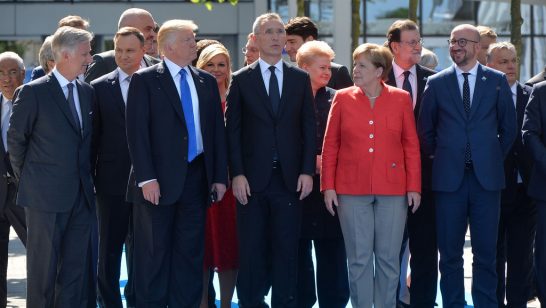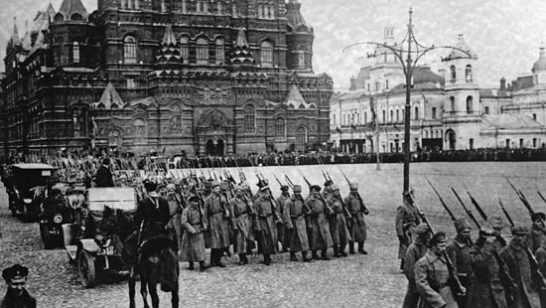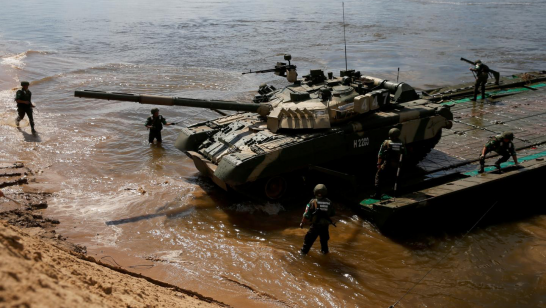A group of prominent Members and Supporters of the Pan-European Task Force on Cooperation in Greater Europe, including former foreign and defence ministers and senior officials from Russia, the United Kingdom, Turkey, Poland, Germany, Italy and Finland have jointly issued an appeal to the leadership of the countries in the Euro-Atlantic area to halt the downward spiral in West-Russia relations and manage its risks better through developing a more stable and sustainable security relationship.
Noting the gravity of the situation, they warn that a serious risk of military confrontation between Russia and the West – intentional or otherwise – is fast approaching. While being realistic about the limited prospects of a quick improvement of relations, they have suggested that stabilising the situation would necessitate a shared commitment to abstain from the use of force, a more cautious and restrained approach to the build-up of military potential by all countries in the Euro-Atlantic area, and proactive seizing of opportunities for arms control and confidence building.
Signatories to the Position Paper called on the political and military leaderships to agree, even if only implicitly, on four fundamental points:
1. A war between Russia and NATO cannot be won and must never be fought, and any attempts to achieve political goals by threat or use of force would be futile.
2. Any efforts to gain decisive military advantage in Europe or any of its regions by developing or deploying new weapons systems will ultimately be pointless, as other countries would counter such moves.
3. There are grave risks of an unmanaged, un-regulated deterrence relationship in which unintended escalation is more likely to happen.
4. The lack of a mutually satisfactory agreement on stabilising the relationship would have a negative effect on each country’s broader national priorities, including economic development and social well-being.
Based on this assessment, the Position Paper includes the following recommendations:
– Check national decisions on new defence acquisitions and deployments against their potential to escalate tensions in Europe.
The principles of restraint and reasonable defence sufficiency should be taken into account when making national decisions on procurements and the development of the capabilities of armed forces.
– Observe the commitments of mutual restraint included in the NATO-Russia Founding Act
Both Russia and NATO have increased their deterrence potential, but – so far – avoided extending all their military might and employing all the available options for bolstering their forces. The signatories suggest that the starting point for a more stable security relationship could be some form of credible return to and reconfirmation of basic principles and mutual restraint commitments, as enshrined in the NATO-Russia Founding Act of 1997.
– Preserve and ensure full implementation of the existing arms control and confidence-building agreements
The signatories highlight the value of existing agreements, including the INF Treaty, New START, and the multilateral Open Skies Treaty, and politically-binding confidence-building measures such as the Vienna Document, and remain concerned about the allegations of non-compliance. Some of them find continued value in the Treaty on Conventional Armed Forces in Europe (CFE).
– Explore the opportunities for new arms control agreements
European security would benefit from opening discussions on new arms control measures, such as agreements on limiting strategic missile defence, the high-precision conventional strike missiles blurring the line with nuclear weapons, cyber-attack measures, use of drones, or the deployment of weapons in space.
– Initiate a comprehensive expert discussion on the conditions for strategic stability in Europe
The signatories recommend, as a starting point, that the expert community should engage more systematically to develop a concept of multilateral strategic stability for Europe, focused primarily on the conventional and nuclear doctrines, postures and military balance, strategic cyber operations, and other non-kinetic measures of confrontation which may have strategic consequences.
Finally, the signatories noted that, beyond stabilising the adversarial relationship, a further priority should be to conduct disciplined dialogue, for the long haul, on the future of European security order.
The following Task Force Members are signatories to this Position Paper:
• Des Browne, Member of the House of Lords, Former Defence Secretary (UK) (Co-Chair);
• Igor S. Ivanov, Former Foreign Minister, President, Russian International Affairs Council, Corresponding Member of the Russian Academy of Sciences (Russia) (Co-Chair);
• Adam Daniel Rotfeld, Former Foreign Minister, (Poland) (Co-Chair);
• Özdem Sanberk, former Permanent Undersecretary, Ministry of Foreign Affairs, and former Chief Foreign Policy Adviser to the Prime Minister, former Director of USAK (Turkey);
• Malcolm Rifkind, former Foreign and Defence Secretary (UK);
• Volker Ruehe, former Defence Minister (Germany);
• Anatoliy Torkunov, Rector of Moscow State Institute of International Relations of the RF MFA, RAS Full Member, Ambassador Extraordinary and Plenipotentiary of the Russian Federation (Russia);
• Angela Kane, former UN High Representative for Disarmament (Germany);
• Paul Quilès, former Defence Minister (France);
• Anatoliy Adamishin, President of the Non-Governmental Organization “Association of Euro-Atlantic Cooperation”, former Ambassador Extraordinary and Plenipotentiary of the Russian Federation;
• Tarja Cronberg, former Member of the European Parliament (Finland);
• Alexei Gromyko, Director of the Institute of Europe of the Russian Academy of Sciences (IE RAS), (Russia);
• Igor Yurgens, Chairman of the Board of the Institute of Contemporary Development, Vice President of the Russian Union of Industrialists and Entrepreneurs (Russia);
• Tony Brenton, former UK Ambassador to Russia (UK);
• Vitaly V. Zhurkin, Director Emeritus of the RAS Institute of Europe, RAS Full Member (Russia);
• Hikmet Çetin, former Foreign Minister (Turkey);
• Ruslan S. Grinberg, Scientific Director of the RAS Institute of Economics, Corresponding member of the Russian Academy of Sciences, (Russia);
• Klaus Wittmann, former Bundeswehr General; Senior Fellow at the Aspen Institute (Germany);
• Mikhail Margelov, former Chairman of the Foreign Affairs Committee of the Russian Federation Council (Russia).
The following Participants to the Task Force May 2017 meeting have added their signature to the Position Paper:
• Carlo Trezza, Former Ambassador for Disarmament and Non-Proliferation, Former Chairman of the Missile Technology Control Regime (Italy);
• Ünal Çeviköz, Former Ambassador to the UK, Iraq, and Azerbaijan, former President of the General Assembly of International Maritime Organization (Turkey);
• Karsten Voigt, Former German-American coordinator in the Federal Foreign Office, Former President of the NATO Parliamentary Assembly (Germany);
• Artem Malgin, Vice-Rector of Moscow State Institute of International Relations of the RF MFA (Russia).
The opinions articulated above represent the views of the author(s), and do not necessarily reflect the position of the European Leadership Network or any of its members. The ELN’s aim is to encourage debates that will help develop Europe’s capacity to address the pressing foreign, defence, and security challenges of our time.



